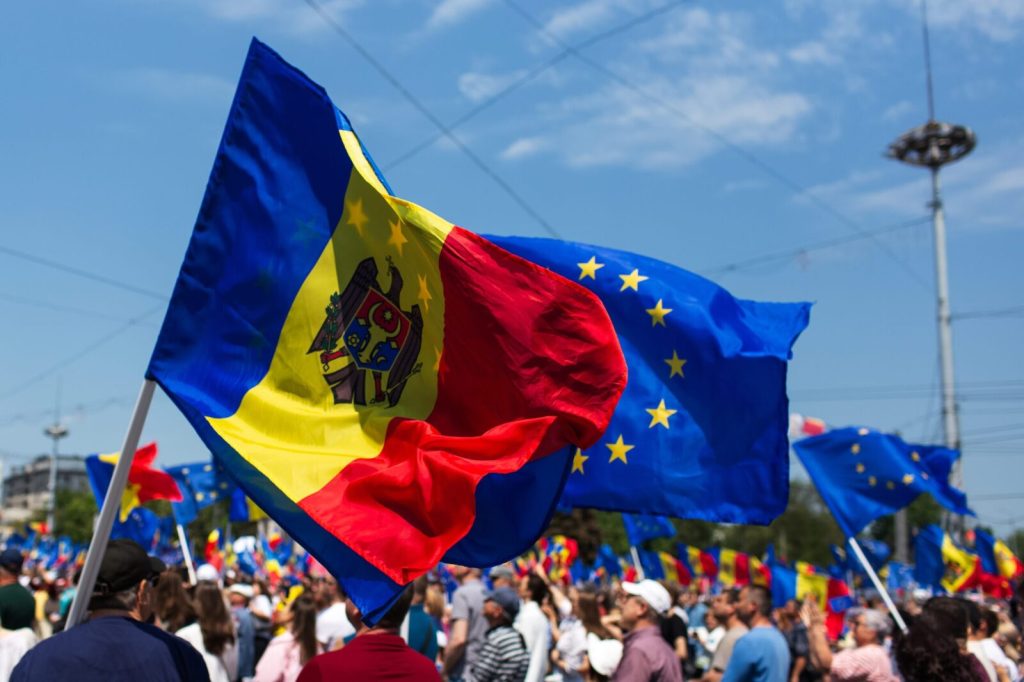Moldova’s Critical Parliamentary Election Could Decide EU Membership Future

Moldova is preparing for a crucial parliamentary election this Sunday that could shape the future of its efforts to join the European Union. Officials have raised concerns about a covert campaign by Russia aimed at influencing the vote and undermining Moldova’s EU aspirations.
The nation, home to 2.4 million people, has faced numerous challenges since Russia’s invasion of neighbouring Ukraine in 2022. These events have put the pro-European government to the test, as it views EU membership as essential for reducing Moscow’s influence. Recent polls indicate that the ruling pro-European Party of Action and Solidarity (PAS) might lose its outright majority and could be forced to form a coalition in the 101-seat parliament.
Opposition groups, including the pro-Russian Patriotic Bloc and the nominally pro-European Alternative alliance, are appealing to voters frustrated by rising prices, slow reforms, and doubts about closer ties with Europe. Meanwhile, Moscow denies any interference and accuses the Moldovan government of stirring anti-Russian sentiment for political gain.
Any coalition government may complicate President Maia Sandu’s goal of securing EU membership by 2030, a process that would require significant legislative efforts. A referendum on EU accession held earlier this year barely passed the 50% threshold.
According to a former senior official, “If we have a coalition, you can forget swift European integration given the options for … partners.”
The European Union has strongly supported Sandu and views a pro-European Moldova as crucial in countering Russian influence in the region. In August, leaders from France, Germany, and Poland visited the capital to demonstrate their backing for the country’s EU ambitions.
Moldova’s population is primarily Romanian-speaking with a substantial Russian-speaking minority. Political power has historically shifted between pro-Russian and pro-European factions. Russian troops remain stationed in a breakaway region that separated from Moldova in a conflict during the early 1990s.
President Sandu has called this election the most important in the country’s history. In a recent address, she warned that Russia is investing hundreds of millions of euros and recruiting hundreds of individuals to disrupt the vote.
She emphasised that “Today, with utmost seriousness, I tell you: our sovereignty, independence, territorial integrity, and European future are in danger.”
In response, Moldovan authorities have intensified investigations into illegal political funding. Security forces recently detained 74 individuals linked to alleged Russian-backed attempts to incite unrest. Officials reported that Russian intelligence has been training Moldovan nationals in Serbia on protest methods.
Igor Dodon, former president and co-leader of the Patriotic Bloc, claimed members of his group were being targeted by the government’s crackdown.
He accused the ruling party of intimidation and silencing opposition voices, saying: “The criminal PAS regime is trying to intimidate us, frighten the people, and silence us.”
Last month, controversial businessman Ilan Shor, sanctioned by Western countries for alleged ties to Russia, openly promised monthly payments to citizens who participate in anti-government demonstrations.
The election comes amid ongoing economic difficulties largely driven by the war in Ukraine and an energy crisis caused by Russia cutting critical gas supplies. Moldova, one of Europe’s poorest countries, has had to rely on costlier energy imports from Romania. Though inflation has eased from double-digit figures last year, it remains around 7%, fuelling public dissatisfaction.
“People don’t see, in their daily lives, the benefits of EU accession,” noted Anastasia Pociumban of the German Council on Foreign Relations.
Corruption remains a persistent issue, and reforms in key sectors, such as the judiciary, have advanced slowly. PAS gained power in 2021 promising better governance and anti-corruption measures, but economic hardships and governmental weaknesses have been exploited by pro-Russian propaganda aimed at various voter groups, according to researcher Eugen Muravschi from the WatchDog.MD think tank.
“The main goal is to mobilise pro-Russian voters, to demotivate and demobilise pro-European voters, and to create confusion among the undecided voters.”
Moldova’s sizeable diaspora is expected to influence the election’s outcome, as voters living abroad, who typically support pro-European parties, are not included in local polling data.
